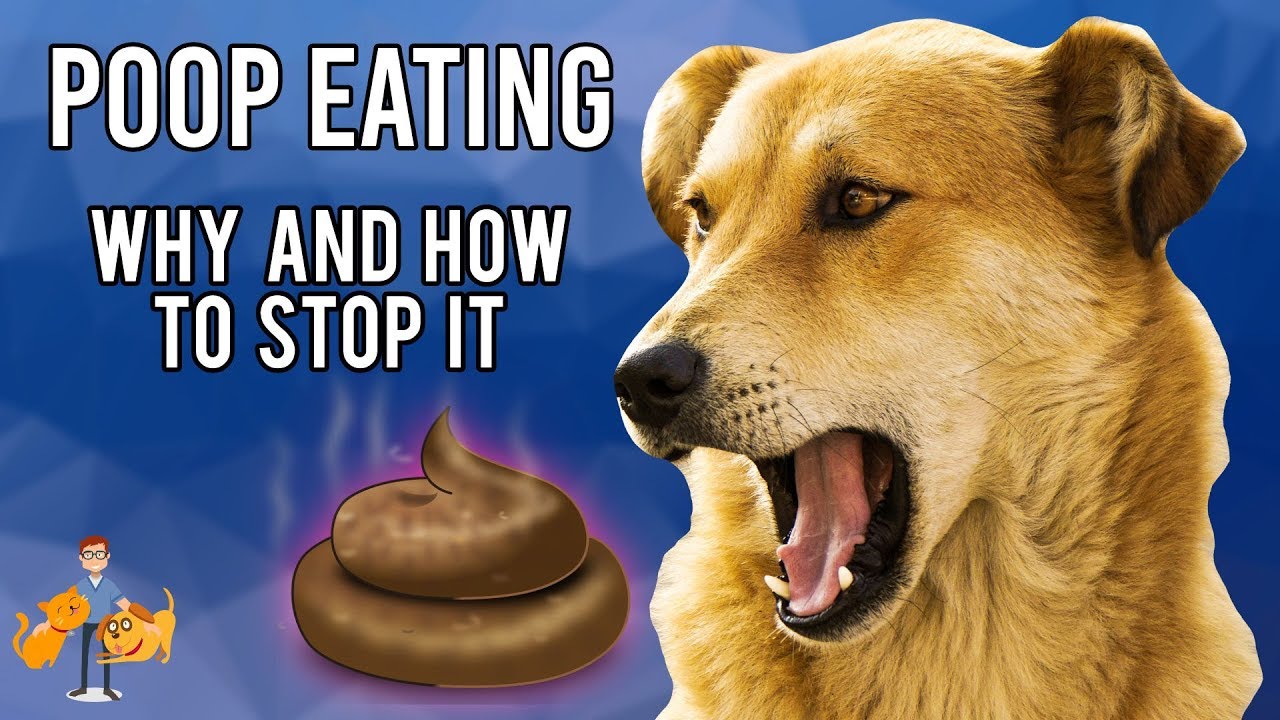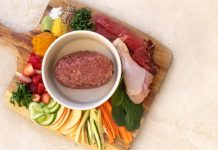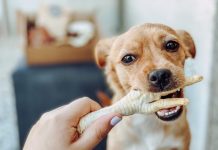Why is My Dog Eating Their Poop?
It’s a behavior that often leaves dog owners baffled and concerned: watching your furry companion eat their poop. But before jumping to conclusions, it’s essential to understand that this behavior, known as coprophagia, is not uncommon among dogs. In this comprehensive guide, we will delve into the intriguing world of coprophagia, exploring why dogs eat their poop and what you can do about it.

Understanding Coprophagia:
To comprehend why dogs engage in coprophagia, we must first examine the behavior itself. Coprophagia refers to the act of dogs consuming their feces or that of other animals. While it may seem bizarre to us, understanding the roots of this behavior is crucial to addressing it effectively.
Reasons Behind Coprophagia:
Now that we’re delving deeper into this intriguing behavior, let’s uncover the reasons behind it. Coprophagia can be driven by a combination of instincts, dietary deficiencies, and behavioral factors. By understanding these underlying causes, you can better grasp why your dog might indulge in this habit.
When to Be Concerned:
While coprophagia is generally considered a harmless behavior in some cases, it can indicate underlying issues. In this section, we’ll explore when you should be concerned about your dog’s poop-eating habits. Recognizing problematic coprophagia is crucial for the well-being of your furry friend.
Seeking Veterinary Advice:
If you suspect that your dog’s coprophagia is linked to health issues or behavioral concerns, seeking professional advice is essential. In this section, we will discuss when it’s time to consult a veterinarian, what to expect during the visit, and how they can help you address and manage coprophagia effectively.
Preventing Coprophagia:
Prevention is key when it comes to coprophagia. In this section, we’ll explore various strategies for curbing this behavior. From dietary adjustments to training techniques and maintaining a clean environment, you’ll discover practical steps to help prevent your dog from indulging in poop-eating.
Optimization:
The heading “Preventing Coprophagia” prominently features the target keyword.
It highlights the importance of prevention and provides practical solutions.
Natural language is used to guide readers toward effective strategies.
FAQ About why dogs eat their poop
Q: Why do some dogs eat their poop?
A: Dogs may engage in coprophagia due to various reasons, including curiosity, dietary deficiencies, or learned behavior.
Q: Is it normal for dogs to eat their feces?
A: While not uncommon, coprophagia can indicate underlying issues. It’s essential to understand the cause behind this behavior.
Q: Can coprophagia be harmful to my dog’s health?
A: In some cases, yes. Consuming feces can expose dogs to parasites or bacteria. Identifying problematic coprophagia is crucial.
Q: How can I prevent my dog from eating their poop?
A: Prevention strategies include dietary adjustments, training techniques, and maintaining a clean environment to discourage the behavior.
Q: When should I be concerned about my dog’s coprophagia?
A: If coprophagia is frequent or appears linked to health issues, it’s time to consult a veterinarian.
Q: Can coprophagia be a sign of an underlying health problem?
A: Yes, coprophagia can sometimes indicate nutritional deficiencies or digestive issues. Consult a vet for a thorough evaluation.
Q: What should I do if I catch my dog eating their poop?
A: Interrupt the behavior calmly and remove the feces. Focus on prevention and address any underlying issues.
Q: Are there any safe deterrents for coprophagia?
A: Some commercial products can help deter coprophagia, but it’s essential to consult your vet before using them.
Q: Can puppies outgrow coprophagia?
A: Yes, many puppies outgrow this behavior as they mature, but it’s still essential to address it appropriately.
Q: Is coprophagia more common in certain dog breeds?
A: Coprophagia can occur in any breed, but some individual dogs may be more prone to this behavior. It’s not breed-specific.
Conclusion:
As we wrap up our exploration of coprophagia, it’s crucial to remember that you’re not alone in this journey. In this concluding section, we’ll summarize key takeaways and offer encouragement to dog owners dealing with coprophagia. Together, we can ensure the well-being and happiness of our canine companions.




